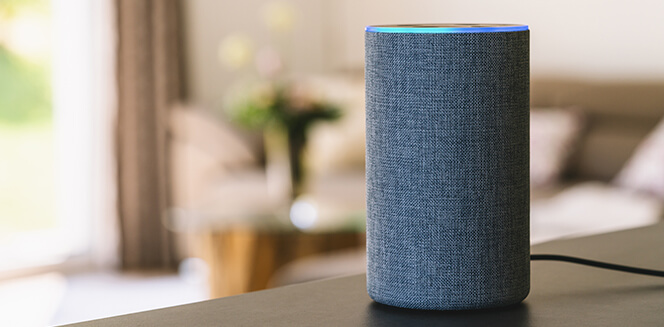Adoption of Smart Speakers Grows with Staggering Pace, New Launches on the Horizon

19 Mar
2019
Advancements in technology have led to the development of innovative smart speakers. Utilization of automated speech recognition technology, microphones, and natural language processing in speakers have provided them an ability to process the commands with precision. The popularity of smart speakers has been gaining with exceptional pace. In the U.K., the popularity of smart speakers has led to its use to calculate inflation. The UK's Office for National Statistics (ONS) creates a “basket of goods” by adding top consumer products. This basket shows how people spend their money on goods and services. Every year, the prominent items are added, and others are discarded. The smart speaker is the new item that made into the list and hi-fi speaker has been discarded. ONS added music streaming services in the basket and people have started using smart speakers to stream the music. Though these speakers have become everyday things, they can affect the bigger picture. They have the power to impact the prices of pensions, train tickets, and interest rates in the country.
The staggering adoption of smart speakers has led to a boom in the industry. According to the research firm Allied Market Research (AMR), the global market of smart speakers is forecasted to reach $23.31 billion by 2025, escalating at a CAGR of 23.4% from 2018 to 2025. Currently, The U.S. dominates the North American region. North America contributes to the major market share in terms of revenue generation. On the other hand, Germany contributes the largest share in the European region, according to the report. According to Rahul Kumar, a research analyst at AMR, “In 2017, based on an intelligent virtual assistant, the Amazon Alexa segment is anticipated to dominate the global smart speaker market in terms of revenue. Furthermore, based on the end user, smart speakers were majorly bought for personal use as compared to commercial use.”
Market players have been trying to offer innovative speakers to gain major market share in the global market. To compete with leading smart speakers such as Google Home, Amazon Echo, Apple HomePod, and others, Samsung is expected to launch its smart speaker Bixby Home by April 2019. The Galaxy Home contains the Bixby virtual assistant that responds to the voice of a user. The AKG division tuned the sound performance of the assistant. The Galaxy Home can become the hub for all the smart devices compatible with the platform. One of the striking and unique features of the smart speaker is its ability to intuitively shift the wave of sound toward the user when asked, according to the company. The user would find himself immersed in the sound, independent of the position in the room. Samsung has invested a lot of resources and years in developing smart speaker with advanced capabilities. It needs to stand the test of time as it competes with competitors which make their speakers available for a lesser price than the Galaxy Home.
In addition, IKEA is also expected to reveal its Sonos connected smart speakers by April this year. Though it would start its actual operation by August, it would unveil them by the next month. The company plans to sell them in the U.S. and Europe. The "bookshelf speaker" will be the first smart speaker released by the company along with Sonos' SYMFONISK range. Moreover, there might be a wall-mounted version in the future. Speakers with the SYMFONISK range are compatible with the current wireless speakers of Sonos and IKEA's Home Smart switches, lights, and its connected blinds. The blinds will also be compatible with Google Assistant, Siri, and Alexa. As new products are coming into the market, it will be interesting to see how dynamics change for market players.

Koyel Ghosh
Author’s Bio- Koyel Ghosh is a blogger with a strong passion and enjoys writing in miscellaneous domains, as she believes it lets her explore a wide variety of niches. She has an innate interest in creativity and enjoys experimenting with different writing styles. A writer who never stops imagining, she has been serving the corporate industry for the last five years.
Avenue: Entire Library membership of Allied Market Research Reports at your disposal
- Avenue is an innovative subscription-based online report database.
- Avail an online access to the entire library of syndicated reports on more than 2,000 niche industries and company profiles on more than 12,000 firms across 11 domains.
- A cost-effective model tailored for entrepreneurs, investors, and students & researchers at universities.
- Request customizations, suggest new reports, and avail analyst support as per your requirements.
- Get an access to the library of reports at any time from any device and anywhere.
Related Post
-
How are Submarine Cables Transforming Global Connectivity with Enhanced User Experience?
-
Endoscopy Procedures: Transformations in Techniques and Applications
-
AI-Powered Video Analytics: How the Product Actually Works for enterprises
-
Painting Robots: Transforming Precision Coating and Creative Applications
-
Innovations in Pharmacovigilance Systems Advancing Patient Safety
-
Understanding Edge Security: Keeping Data Safe Near the Source
-
Exploring the Use and Advancements of 3D Laser Scanners in Professional Applications
-
Reinforcing Industrial Controls with Smarter Tools and Training








